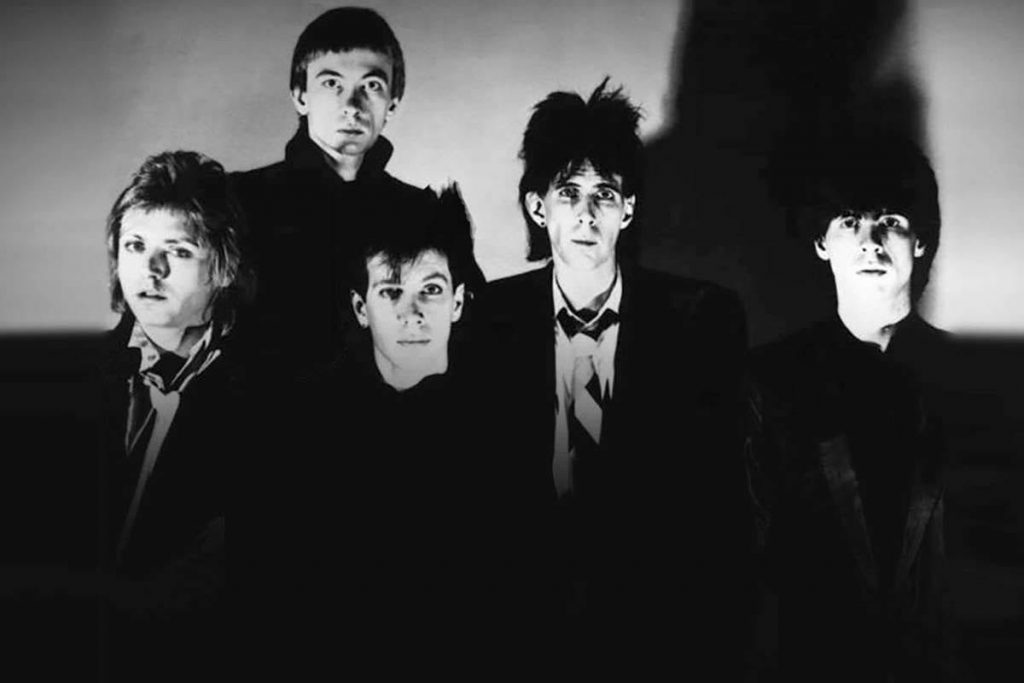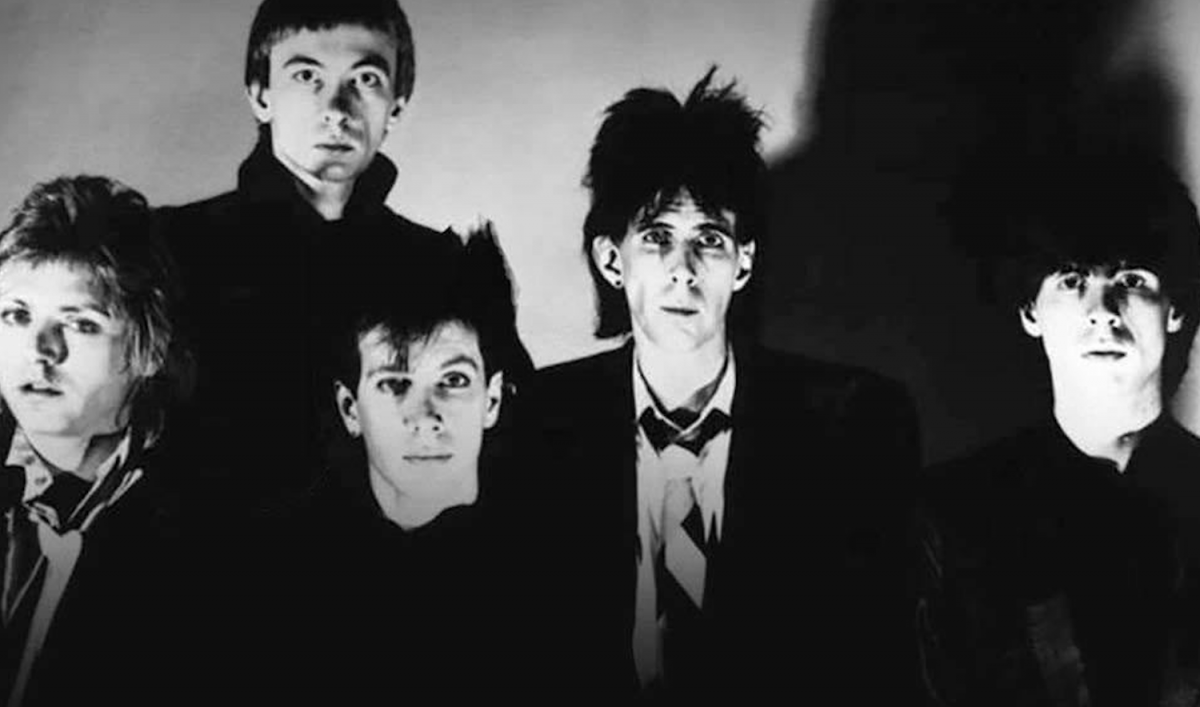
With his lean frame and leaner musicality, Ric Ocasek led the Cars through the testiest, most experimental but hit-making music the new wave would know. Six sharp, strange, electronically seduced albums—The Cars (1978), Candy-O (1979), Panorama (1980), Shake It Up (1981), Heartbeat City (1984) and Door To Door (1987) —and a handful of deceptively simplistic smash singles (“My Best Friend’s Girl,” “Let’s Go,” “Good Times Roll,” “Drive”) turned the Boston band into superstars, and its other lead singer—the late Ben Orr—into a heartthrob. The Cars splintered upon Orr’s passing. Ocasek made a name for himself as a solo artist and, more so, a top-tier producer for Weezer, Guided By Voices, Le Tigre, Iggy Pop and Alan Vega, among others, before re-teaming with the Cars for 2011’s Move Like This. Now, Rhino has released a remastered boxed set of the band’s first decade.
Before we talk about the Cars, let’s chat production work: You did the Cribs last year and Weezer’s album the year before that. What does it take for an act to pique your interest?
First, I don’t want a band who is run-of-the-mill. Solid lyrics are important as a general attribute that a band must have. I feel like they have to have their own sound intact, because I’m not going to be there to change them. I’m someone who’ll be there to make sure that they sound stellar. Because, hopefully, I like the band, as someone that I would listen to.
Anyone out there now, whose work you’ve heard, you’d like to get your hands on?
Yeah, actually. There are a few acts out there whose sounds I love. Lana Del Rey, for instance. I love her soul. There are others—I don’t actually go out and look. I did before go after bands, more than I do now. If they’re someone not four or five albums deep, I’d find out about them. I like doing first albums. They’re the most exciting for any band. Making a new band feel comfortable is essential, speaking as a band member myself. That said, doing Weezer’s 2014 album—I love Rivers’ songwriting and would work with them any time.
That’s interesting that you’d equate yourself with being a band member. Why didn’t you ever produce the Cars? I’ll guess that you didn’t want the job.
I kinda didn’t. I mean, they were doing all my songs. I wanted to have an outside vision …
A distance?
Yes. Then again, I got the same producer for nearly all of the Cars’ albums—Roy Thomas Baker—save for the one Mutt Lange did. It’s hard to put yourself in the writing and performing position when you also have to produce.
Conflicting stories abound. Did the label get Baker for you? There was certainly the connection between Elektra and Queen—they couldn’t have wanted that sound for you?
Tony Visconti was in the mix, too. Roy was suggested by Elektra. I had never made an album in my life. Any suggestion was amazing, but Roy was funny. He came to one of our gigs at some high school in Worcester, Mass., him and 12 people during a blizzard. He was thoroughly into the idea of producing us but wanted to do it in England. That was great—we’d never been there, or anywhere.
The label did you a solid.
They did. Labels being involved with an artist didn’t have to be a bad thing. Plus, Roy taught me a lot about handling band personalities. He was an electronics whiz, a sound guy with a classical background for mic-ing the room’s sound. He got harmony. And he took things in stride; a very upbeat, elegant man. Spontaneous, too.
Having to remaster a Cars album seems redundant since all of yours were sleek and maximal. School me.
You’re right. It’s funny. All the Cars records sound beautiful; have the same polish as the album before. The box set doesn’t change anything. Remastering presents a different premise: leveling things out, propelling a bass line. Roy used to say, “If you want more bass, turn up the knob on your stereo at home.”
Who did you find inspirational in terms of lyrics? I know you were a big Beat Gen fan, and I get the Burroughs in you.
Dylan was my favorite. My second favorite was Lou Reed. I liked the early folk people of the ‘60s that I came up with; psychedelia, too. The poetry—I went toward City Lights hard. I did Richard Brautigan and Baudelaire. The Beats’ flowery words and images: so wonderful.
What would you say, thinking back, was Ben Orr’s strong suit, the thing that bonded you guys?
I met Ben in 1968. I had a band in Columbus, Ohio, called, of all things, ID Nirvana, very era appropriate—and he came to see us. He told me he could sing, came to my house and sang the Beatles’ “Yesterday” in the sweetest voice I ever heard. Next day, he joined that band and every band I had up to and through to the Cars. He was my best friend, we hung out together, lived across the street from each other. We were practically married. He had great ears. I adored his personality and that voice of his—it was so much better than mine. That’s why I picked some of the quirkier Cars songs to sing.
I’ve spoken with you previously, and never caught such genuine emotion as I am here. Going through the collection—did anything make you choke up?
I loved Ben Orr. Certainly some of the songs got me. I forgot some of them were even there. It was really nice. I even found some tapes of just Ben and me. That made me very sentimental.
—A.D. Amorosi







